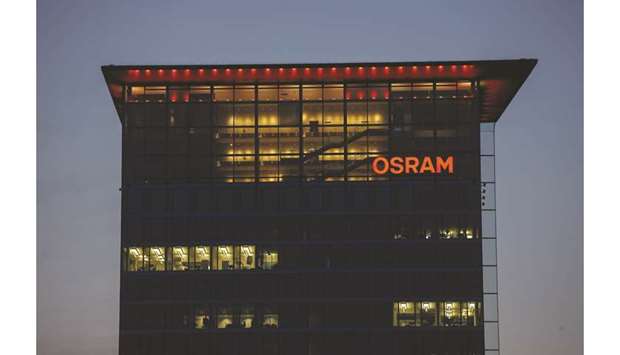AMS AG clinched a €4bn ($4.4bn) takeover of German lighting specialist Osram Licht AG, paving the way for the Austrian company to expand in the market for sensors.
Osram investors tendered at least 55% of shares in favour of the bid, AMS said Friday in a statement after markets closed. The company didn’t specify the exact percentage tendered to meet an acceptance threshold that had been lowered to improve its chances of success.
“We are pleased to announce that we have been successful,” AMS chief executive officer Alexander Everke said in the statement. “We would like to thank Osram shareholders for placing their trust in us.”
Apple Inc supplier AMS overcame initial pushback from Osram and scepticism from unions fearful of job cuts.
AMS will now aim to hold an extraordinary shareholder meeting in January in order to approve the capital raise it will need to finance the transaction.
Because the tender was successful, an extended tender period now kicks in allowing shareholders to trade in their shares until December 24. AMS expects the deal to close in the first half of 2020, it said in the statement.
Osram shares closed 0.4% higher at €38.50 in Frankfurt before the announcement, while shares of AMS gained 1.3% to 48.40 Swiss francs.
The offer was AMS’s third for Osram, which emerged as a target last year after warning trade friction and a cooling of the car industry had clouded the outlook for 2019. The former division of Siemens AG gets about half of its revenue from the automotive sector. A series of profit warnings further eroded investor confidence, sending shares tumbling until the takeover battle took hold.
An initial overture from AMS early this year was quickly withdrawn. Its first tender offer in October failed due to a lack of demand. Still, the company was successful in fending off rival bids from private equity suitors by buying up a nearly 20% stake in Osram.
Osram’s union and employee representatives had criticized AMS’s bid for control. The top labour representative went as far as appealing directly to Germany’s financial watchdog, Bafin, to block the bid.
After Osram management was eventually won over, the two companies worked together to try to bring on board investors including a raft of hedge funds. These often sit out offer periods in order to get a higher price during a subsequent squeeze-out to mop up remaining shares once a tender is successful.

The Osram Licht logo and office windows are seen illuminated on the company’s headquarters in the Skyline Tower in Munich. Osram investors tendered at least 55% of shares in favour of the bid, AMS said Friday in a statement.
